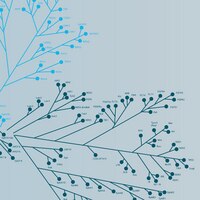PKA/PrKX activity is a modulator of AAV/adenovirus interaction.
Di Pasquale, Giovanni and Chiorini, John A
EMBO J., 22: 1716-24 (2003)
2003
显示摘要
Interference between viruses occurs when infection by one virus results in the inhibition of replication of another virus. Adeno-associated virus (AAV2) is a human parvovirus with the unique characteristics of a dependence upon a helper virus for a productive infection and the ability to interfere with the replication of the helper virus. Previously, we demonstrated that AAV2 Rep78 and Rep52 interact and inhibit cAMP-dependent protein kinase A (PKA) and its novel homolog PrKX. We hypothesized that modulation of PKA activity by AAV2 may be responsible for inhibition of helper virus replication. In this study we demonstrate that adenovirus replication is sensitive to PKA activity and that AAV2 Rep78/Rep52 proteins contain an inhibitory domain similar to that of the heat-stable PKA inhibitor. This domain, while not directly necessary for AAV2 replication and packaging, is necessary to preserve AAV2 replication fitness during an Ad co-infection. Furthermore, a mutant AAV2 virus lacking this region fails to inhibit adenovirus replication. Thus, inhibition of PKA activity by AAV2 constitutes a novel form of viral interference. | 12660177
 |
PRKX, a phylogenetically and functionally distinct cAMP-dependent protein kinase, activates renal epithelial cell migration and morphogenesis.
Li, Xiaohong, et al.
Proc. Natl. Acad. Sci. U.S.A., 99: 9260-5 (2002)
2002
显示摘要
The human protein kinase X gene (PRKX) is a member of an ancient family of cAMP-dependent serine/threonine kinases here shown to be phylogenetically distinct from the classical PKA, PKB/Akt, PKC, SGK, and PKG gene families. Renal expression of the PRKX gene is developmentally regulated and restricted to the ureteric bud epithelium of the fetal metanephric kidney. Aberrant adult kidney expression of PRKX was found in autosomal dominant polycystic kidney disease. PRKX kinase expression markedly activated migration of cultured renal epithelial cells in the presence of cAMP; this effect was blocked by cell treatment with the PKA inhibitor H89 and was not observed in PKA-transfected cells. In addition, expression of PRKX kinase activated branching morphogenesis of Madin-Darby canine kidney cells in collagen gels even in the absence of cAMP and/or hepatocyte growth factor, an effect not seen with either PKA expression or expression of a mutant, kinase-inactivated PRKX. These results suggest that the PRKX kinase may regulate epithelial morphogenesis during mammalian kidney development. Because another member of the PRKX gene family (the Dictyostelium discoideum gene KAPC-DICDI) also plays a role in cellular migration, these studies suggest that regulation of morphogenesis may be a distinctive property of these genes that has been conserved in evolution that is not shared with PKA family genes. | 12082174
 |










